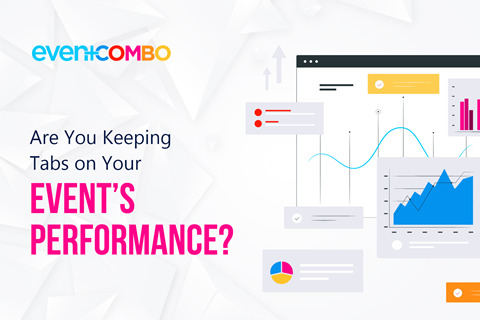How NFTs and the Metaverse will change the future of events

Jan 13, 2022 Ayushi Tiwari
The concept of NFTs and the Metaverse has become a trending topic. It is being touted that these trends will take the events industry by sweep. This can make our lives incredibly exciting, yet the theory behind these two buzz words is not fully clear to many. Let us take a closer look.
What is a Metaverse?
A Metaverse is a 3D online virtual environment that aims to blend physical and virtual worlds. It enables the users to interact in real-time, which is not limited to sharing pictures and videos only. A metaverse allows the users to network, connect, interact with virtual communities and explore new dimensions by using augmented reality. In the future, the metaverse will enable its users to seamlessly move from one metaverse event to another.
This 3D digital world accommodates a number of attributes, including but not limited to gaming, virtual estates, creation of virtual identities, communication and finances. There are transactional token entities that can be used for trading purposes in the virtual marketplace known as metaverse tokens. Some of the popular metaverse tokens are MANA, GALA, Fantom and Terra.
Rebranding of Facebook
Mark Zuckerberg, Facebook CEO had announced in October last year that Facebook will be rebranded as Meta. He had stated that in the coming years, people will be able to experience a sense of presence, despite being geographically far from one another. It is expected that in the coming decade, over one billion people will become a part of this dynamically changing digital world.
Facebook's rebranding was much more than a simple change of name. Metaverse is a massive virtual world available to anyone at any time. It is a virtual space where millions of people and their virtual avatars can interact with each other in real time.
Horizon Workrooms of Facebook
We know how major tech giants are extensively working towards building proto-metaverses. Facebook has come up with horizon workrooms, a virtual office that enables an individual to interact with her/ his fellow employees in a virtual landscape. One can collaborate with them, have a look at what they are working on in real time.
Nike’s Virtual Sneakers
Back in 2019, Nike had secured a patent for CryptoKicks, an NFT token for a physical shoe. When a user makes a purchase, they receive an NFT backed by blockchain technology. This takes care of authenticity and verification. If this shoe is sold further, the digital token is still considered a token of authenticity.
In October 2021, Nike had filed for a trademark to trade their sneakers in the virtual world. They even launched a virtual game zone on Roblox known as Nikeland. Fans can create virtual avatars for themselves and play games in this virtual space.
What is an NFT?
NFT is also known as non-fungible token. Let us first understand the difference between fungible and non-fungible assets or tokens.
Fungible Tokens
Anything that can be replaced or can be traded in exchange of another physical asset is a fungible token. A gold or a silver coin is a fungible asset. They can be traded for money or for other assets in return. Fungible goods are assets that are neither unique or rare, nor they come under collector's edition. Thus, a fungible good is a common item.
Non-fungible Tokens
Any unique asset that cannot be easily replaced or exchanged is a non-fungible token. Rare coins, antique stones and rare paintings are some examples. Non-fungible assets are irreplaceable and cannot be duplicated. The primary function of an NFT is to display ownership by creating digital scarcity. In the real world, collectibles are valued more because not everyone owns them or has access to them.
Getting back to NFTs
NFT is anything that is rare, unique and non-replicable. All NFTs are linked with smart contracts (codes linked to a digital asset confirming its uniqueness, traceability and verifiability), thus providing a concrete proof of ownership along with the asset's history and origin. Though currently, NFTs are being discussed mostly in relation to the art world and how their introduction has led to a transparent dialogue between owners and buyers, NFTs untapped potential is also being explored in other industry domains like gaming, social impact, real estate, education, banking and apparel.
NFT and Metaverse relationship
We are well aware that any development regarding NFT and the Metaverse is big, and that Metaverse is nothing but a massive digital world. In a metaverse, one can own digital assets like virtual profiles, digital avatars, virtual lands and even an event ticket. When an individual registers herself/ himself for a virtual event, these digital assets give them a means of entry or holder access in these virtual events. Here comes the role of NFTs where these tokens are unique collectable assets that cannot be duplicated, though they can be traded for acquiring other assets in a metaverse or these virtual events.
NFTs, metaverses and events
Let us explain this relationship with an example. Suppose, you have participated in a 3D virtual event along with other attendees. In a metaverse, you can pick up a pair of NFT shoes from a branded store for your online avatar. This way you do not only make a digital purchase, but you also represent a pair of branded shoes in the real world as well.
Similarly, your NFT ticket purchased for a particular event can turn into a collectible, or you being the only owner of that ticket will now have access to several other opportunities to attend events and experience the virtual world. Your online persona will get amplified by owning a unique NFT.
If you are looking to host and plan great virtual and phygital events for your company, check out Eventcombo’s events solutions and take your virtual gatherings to the next level.
close








